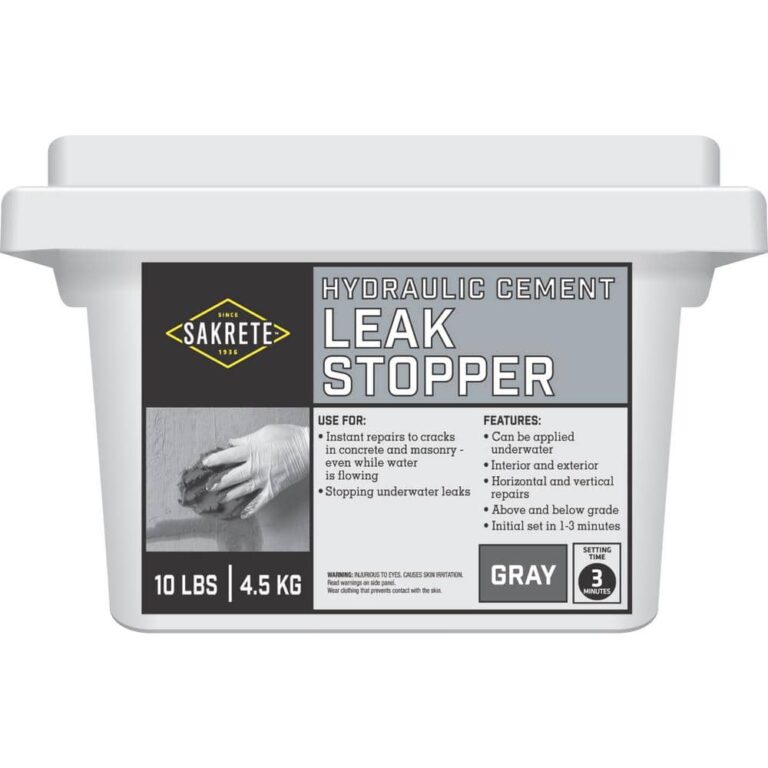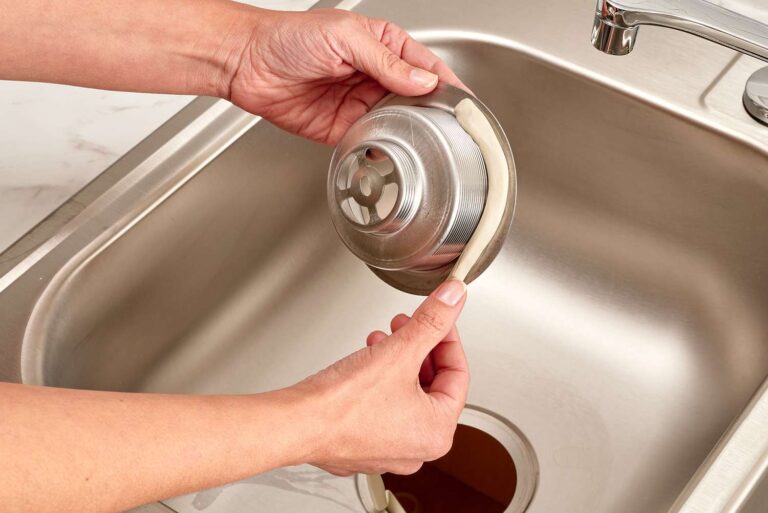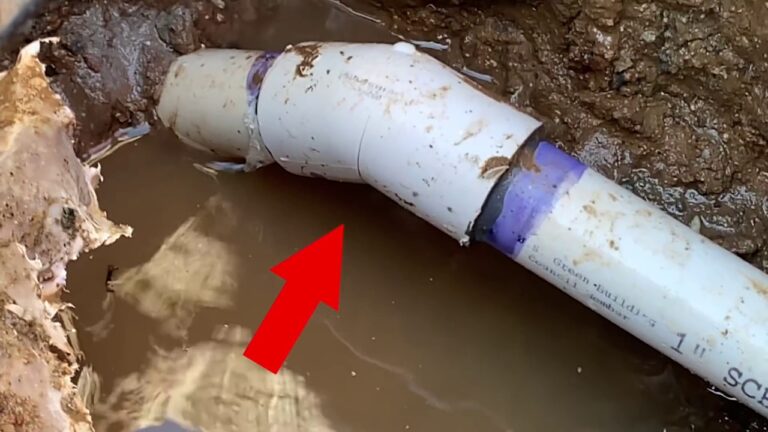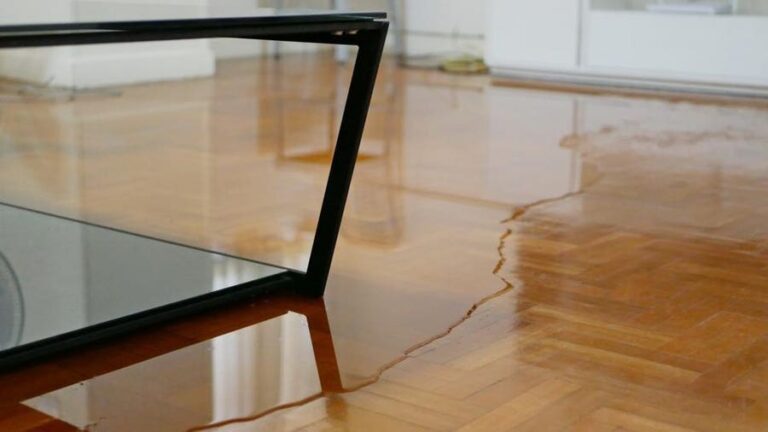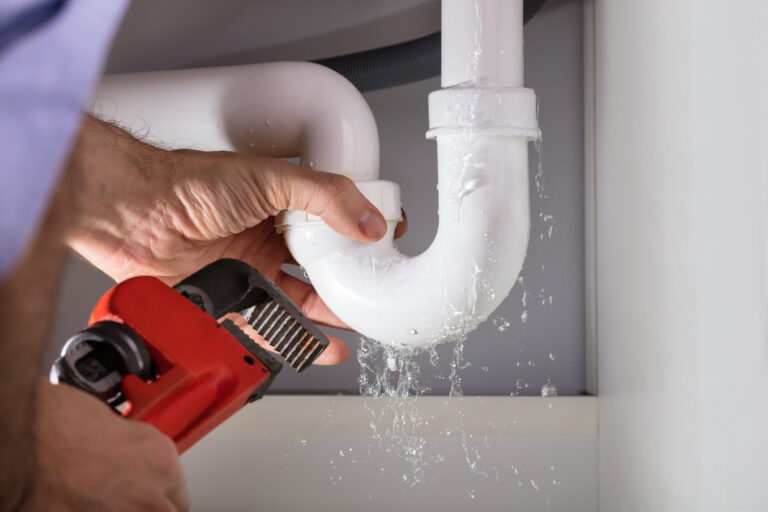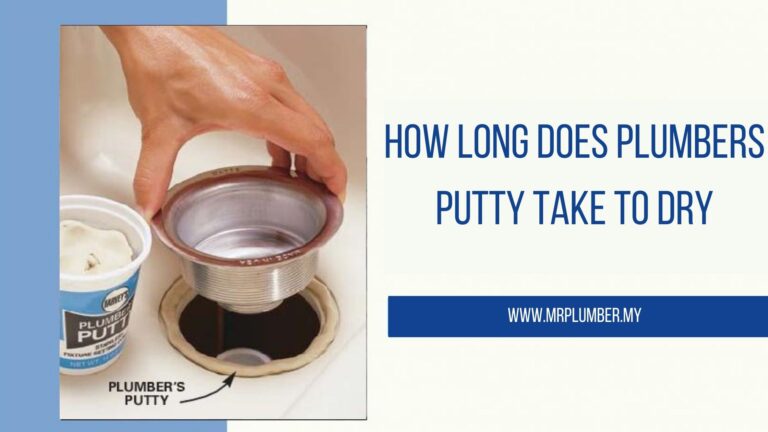What Is The Definition Of A Plumbing Leak?
A plumbing leak is a plumbing issue that occurs when water escapes from a pipe, fixture, or other plumbing supply. Plumbing leaks can be caused by a variety of issues, including worn or broken pipes, faulty valves, or incorrect installation. Leaks can cause costly damage to homes and businesses, and can lead to higher water bills if not identified and repaired promptly. To prevent leaks, it is important to inspect plumbing regularly, and to look out for signs of leaks, such as water pooling on the floor or a decrease in water pressure.
Types of Plumbing Leaks
Plumbing leaks can come in all shapes and sizes, ranging from small and easily repairable to major disasters that require extensive repair work and even replacement of fixtures. It is important to understand the different types of plumbing leaks in order to take the most effective action when they occur. Common types of plumbing leaks include:
- Dripping Faucets: A dripping faucet usually indicates a worn washer or seal within the faucet assembly. This type of leak can often be fixed by replacing the washer.
- Leaky Pipes: Leaky pipes are more difficult to locate and repair. These can be caused by corrosion or damage from freezing temperatures. Repairing a leaky pipe requires the assistance of a professional plumber.
- Toilet Leaks: Toilet leaks can be caused by a worn wax ring, a faulty flapper, or a broken fill valve. This type of leak often requires the services of a plumber to repair and is usually more expensive than fixing a dripping faucet.
- Slab Leaks: Slab leaks occur beneath the concrete foundation of a home or building and can be caused by poor pipe installation, corroded pipes, or shifting soil. Slab leaks are difficult to detect and require professional repair.
It is important to identify and repair plumbing leaks as soon as possible to avoid further damage and expense. A professional plumber can help diagnose and repair all types of plumbing leaks, no matter how small or large.
Causes of Plumbing Leaks
Plumbing leaks can occur for a variety of reasons. Poor installation, aging plumbing pipes, and water pressure can all contribute to plumbing leaks. Poor installation of pipes, fixtures, and valves can lead to water leakage due to improper connections. Over time, pipes become aged and corroded and can form pinhole leaks if not properly maintained. High water pressure can also cause pipes to leak due to the stress that it can put on the pipes. Moreover, tree roots can also be a cause of plumbing leaks as they can break through pipes and cause water to escape. It’s important to be aware of the cause of plumbing leaks as it can help to identify the best solution for the problem.
Signs of Plumbing Leaks
Plumbing leaks can cause a multitude of problems in your home, from water damage to mold and mildew. However, recognizing a plumbing leak can be tricky, especially if you don’t know what to look for. This article will discuss the signs of plumbing leaks, so you can identify a plumbing issue quickly and avoid serious damage.
The first sign of a plumbing leak is a high water bill. If you notice a sudden increase in your monthly water bill, it’s likely a sign of a plumbing leak. Additionally, if you hear the sound of running water when all your faucets and appliances are turned off, it’s a sign of a leak. You should also look out for water spots on the ceiling, walls, or floor; discoloration of walls, floors, or ceilings; and unexplained pooling of water near fixtures.
The smell of mold and mildew is also an indication of a plumbing leak. If you notice a musty smell in your home, it’s likely caused by a plumbing issue that needs to be addressed. Furthermore, if you see bubbling or flaking paint on your walls or ceilings, it could be because of a leak.
If you suspect you have a plumbing leak, it’s important to act quickly. Ignoring the issue can lead to costly repairs and extensive water damage. To prevent costly repairs in the future, contact a plumbing professional to inspect your home and fix any issues.
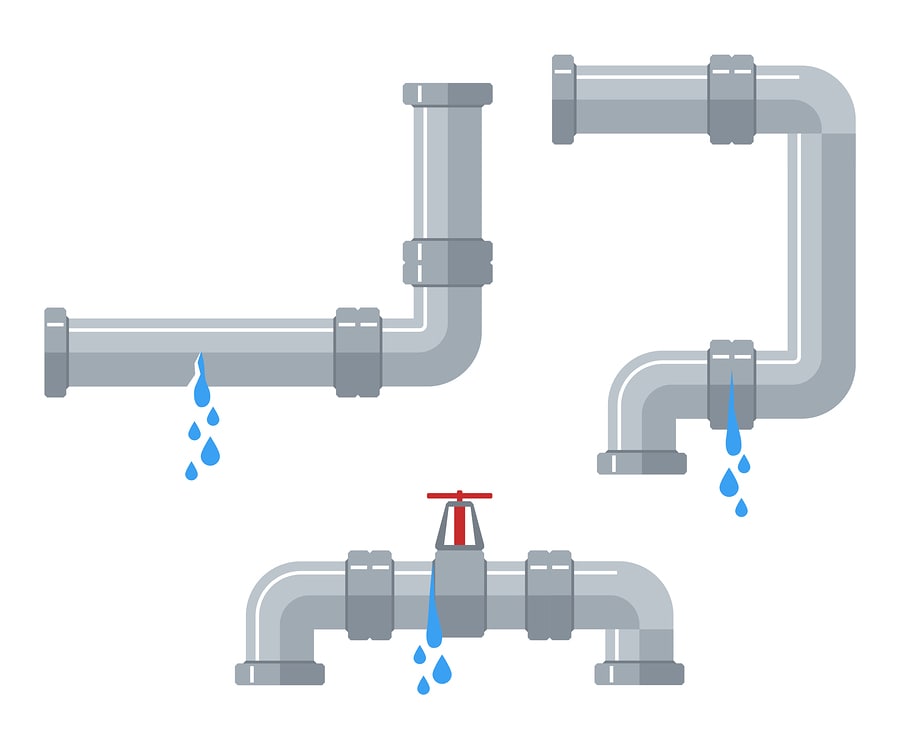
Detecting Plumbing Leaks
A plumbing leak is a water leak in a home’s plumbing system. It can be a minor problem, such as a dripping faucet, or a major issue, such as a burst pipe. In any case, a plumbing leak can cause serious damage to your home and should be addressed as soon as possible.
Detecting a plumbing leak is a first step in addressing the issue. These leaks can generally be found in the areas where plumbing fixtures such as toilets, sinks, and bathtubs are installed. Look for signs such as water stains, musty odors, and mold growth. If you see or smell any of these signs, you should contact a professional plumber immediately.
You can also detect plumbing leaks with specialized testing equipment. For example, a video camera can be inserted into the plumbing system to inspect for leaks. Ultrasound technology and infrared cameras are also used to detect plumbing leaks.
To prevent plumbing leaks from occurring, it is important to maintain your home’s plumbing system on a regular basis. This includes inspecting pipes for signs of wear and tear, performing preventive maintenance, and checking for leaks on a regular basis. If you notice any signs of a plumbing leak, contact a professional plumber as soon as possible.
Prevention and Maintenance of Plumbing Leaks
Plumbing leaks can cause a homeowner significant damage, from water damage to mold remediation and even structural damage. It is therefore essential to be aware of the definition of a plumbing leak and the steps that can be taken to detect and prevent them.
Plumbing leaks are defined as any water leakage from pipes, fixtures, or connections in a home. They can occur above or below ground, inside a wall, under a sink, or in the foundation of a house. Plumbing leaks can range in size from small and barely noticeable to large and catastrophic. Common signs of a plumbing leak are visible water stains, mold, warped wood, and sagging or damp ceilings.
Homeowners should take proactive measures to detect and prevent plumbing leaks. Consider installing water sensors or a water leak detection system, which can alert you to the presence of a leak before it causes major damage. Additionally, inspect your home’s pipes and fixtures regularly for signs of wear or corrosion. If any leaks are detected, contact a professional plumber right away and have the issue addressed.
The best way to prevent a plumbing leak is by properly maintaining your home’s plumbing system. Have your pipes and fixtures inspected and serviced by a professional on a regular basis. Keep an eye out for any signs of water damage or discoloration in walls, floors, or ceilings, and have a plumber investigate if anything appears suspicious. Taking these proactive steps can help you to detect and prevent plumbing leaks before they cause significant damage.
Consequences of Plumbing Leaks
A plumbing leak can be a major inconvenience for homeowners, leading to costly repairs and water bills. It is important to be aware of the potential consequences of a plumbing leak, as it can cause significant damage to your home and lead to a variety of health issues.
When a pipe, fixture, or appliance springs a leak, the water will accumulate in the surrounding areas, leading to water damage and the potential for mold growth. This can cause structural damage to the walls, floors, and ceilings of a home, as well as damage to furniture, carpets, and other items. If left unchecked, it can also lead to dangerous health issues, such as respiratory illnesses or allergies.
In addition to the damage caused by the water itself, plumbing leaks can also increase your utility bills. Even a small leak can lead to an increase in your monthly water bill, as water is constantly being lost through the leak. A large leak can quickly add up to hundreds of dollars in wasted water.
Finally, a plumbing leak can also be an environmental hazard. Water that flows through a leak is often contaminated with hazardous chemicals and pollutants, and can cause damage to the local ecosystem. If left unchecked, it can also create a breeding ground for mosquitoes, insects, and other pests.
It is important to be aware of the consequences of a plumbing leak and take measures to prevent them. A qualified plumber can help identify the source of the leak and offer solutions to repair it. Taking the time to repair a plumbing leak can save you money in the long run and keep your home safe and healthy.
FAQs About the What Is The Definition Of A Plumbing Leak?
1. What is the difference between a plumbing leak and other types of water leaks?
A plumbing leak refers to a leak that is related to the plumbing system in a home or building. This could include a leaking pipe, a faulty fixture, or a broken seal around a plumbing appliance. Other types of water leaks could include roof leaks and foundation cracks.
2. How can I tell if I have a plumbing leak?
There are several warning signs that can indicate a plumbing leak. These include water stains on walls and ceilings, a musty smell in the home, and higher than normal water bills. If you suspect a plumbing leak, it is important to contact a professional plumber for an inspection.
3. How can I prevent plumbing leaks and water damage?
The best way to prevent plumbing leaks and water damage is to have your plumbing system inspected regularly by a professional plumber. Additionally, make sure to repair any small plumbing problems as soon as possible and keep an eye out for signs of leaks.
Conclusion
A plumbing leak is an unwanted escape of water from a plumbing system, which can be caused by worn or damaged pipes, fittings, or fixtures. Plumbing leaks can cause considerable damage to a home or business, and should be addressed as soon as possible to minimize the potential for further damage.


